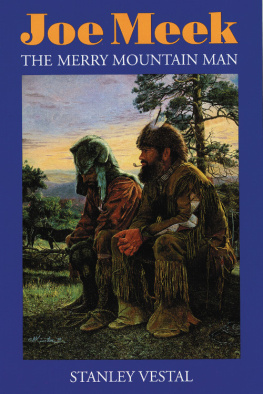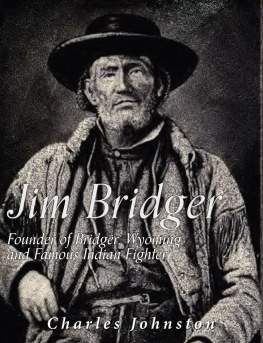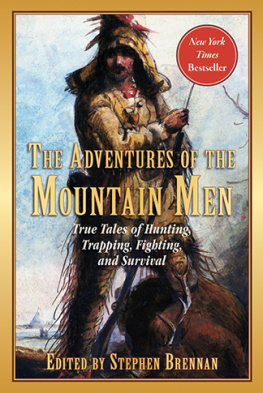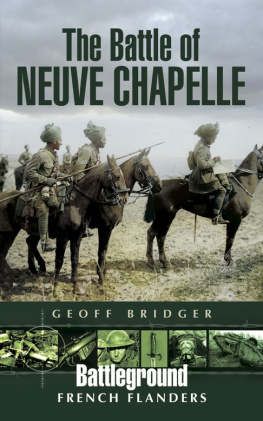Stanley Vestal - Jim Bridger - Mountain Man
Here you can read online Stanley Vestal - Jim Bridger - Mountain Man full text of the book (entire story) in english for free. Download pdf and epub, get meaning, cover and reviews about this ebook. year: 2013, publisher: Read Books Ltd., genre: Detective and thriller. Description of the work, (preface) as well as reviews are available. Best literature library LitArk.com created for fans of good reading and offers a wide selection of genres:
Romance novel
Science fiction
Adventure
Detective
Science
History
Home and family
Prose
Art
Politics
Computer
Non-fiction
Religion
Business
Children
Humor
Choose a favorite category and find really read worthwhile books. Enjoy immersion in the world of imagination, feel the emotions of the characters or learn something new for yourself, make an fascinating discovery.

- Book:Jim Bridger - Mountain Man
- Author:
- Publisher:Read Books Ltd.
- Genre:
- Year:2013
- Rating:3 / 5
- Favourites:Add to favourites
- Your mark:
- 60
- 1
- 2
- 3
- 4
- 5
Jim Bridger - Mountain Man: summary, description and annotation
We offer to read an annotation, description, summary or preface (depends on what the author of the book "Jim Bridger - Mountain Man" wrote himself). If you haven't found the necessary information about the book — write in the comments, we will try to find it.
Jim Bridger - Mountain Man — read online for free the complete book (whole text) full work
Below is the text of the book, divided by pages. System saving the place of the last page read, allows you to conveniently read the book "Jim Bridger - Mountain Man" online for free, without having to search again every time where you left off. Put a bookmark, and you can go to the page where you finished reading at any time.
Font size:
Interval:
Bookmark:
MOUNTAIN MAN
A BIOGRAPHY
BY
STANLEY VESTAL

W ALTER S TANLEY C AMPBELL
All rights reserved
THIS BOOK, OR PARTS THEREOF, MUST NOT BE REPRODUCED
IN ANY FORM WITHOUT PERMISSION OF THE PUBLISHER.
PRINTED IN THE UNITED STATES OF AMERICA

JIM BRIDGER
TO
THE MEMORY
OF
MY SISTER
MAY
Jim Bridgers was a fabulous career. He was one of the foremost trappers in the Rocky Mountain Fur Company. But the days of the beaver trade were numbered, and by the mid-century Jim had become the most important scout and guide in the whole West.
Blessed with relentless powers of observation and memory, he could with a buffalo skin and a piece of charcoal, map out any portion of this immense region with wonderful accuracy or look at a printed map, and point out its defects on sight.
The book is full of colorful anecdote. Bridger hunted with the dashing Scottish sportsman and baronet, Capt. Sir William Drummond Stuart, who turned up in the wilds sporting white shooting jackets and a Panama hat. He acted as guide for some of the most famous U. S. exploring expeditions and Indian campaigns. He was interpreter at the great Indian peace treaty at Fort Laramie.
He was a friend of Kit Carson and Tom Fitzpatrick, and his feud with Brigham Young almost brought ruin to both men. His nickname Old Gabe became a synonym for courage and open-handed generosity. Few of the great figures of the frontier contributed more to the opening of the West.
Stanley Vestal is well-known for his books about America, the last, his distinguished contribution to the Rivers of America series, The Missouri. In Jim Bridger he paints a bold and authentic picture of a doughty explorer and of the richness of this country when it was young.

E VER since the days when, as a boy, I raced Indian ponies and swam in a Western river with the Cheyenne lads, I have felt the lack of a satisfying portrait of Jim Bridger. The intervening years permitted much research, but somehow the books about Bridger never seemed to do him justice. In his own time he was a legend, and since his death historians have been content for the most part merely to pile up facts around these retold incidents. There has been no adequate biography to bring the man to life.
Few men have been so misrepresented.
On the one hand, he was represented in fiction and on the screen as a drunken, loutish polygamist and liar, in a caricature so monstrous that his outraged relatives brought suit to recover damages. The court ruled that no one could confuse this caricature with the real Jim Bridger, and denied the suit.
On the other hand, Jim Bridgers real achievements have been ignored or neglected by writers, who have tried to represent him as an Injun fighter with all the dash and daring of Kit Carson, as a wag with all the wit and love of fun of Joe Meek, or as a crusty, ignorant hillbilly, unable to hold his own in the society of civilized men. His real work as one of the greatest of American explorers has been too often overlooked.
But Bridgers glorious memory needs no false glamour. The man was greater than his legend. His true character requires no defense and no apology. Few men in American history have been more uniformly trusted and respected, or have shown themselves more hospitable or generous, more companionable or more agreeable in manner. Wherever he went Bridger inspired confidence, and usually performed what others about him considered sheer impossibilities. That gray-eyed, rawboned, six-foot frontiersman has never been painted to the life.
The earlier biographies are all out of print. It is time for a new attempt.
I have found considerable new and neglected material, particularly with regard to the meaning of Bridgers Indian name, his knowledge of the Indians, his part in the treaty of Laramie and the defense of Fort Phil Kearney, and his days at Fort Bridger. With all this I have presented, I hope, a truer interpretation of his character and motives than has been offered heretofore.
Living in troubled times, twice suffering the loss of everything he owned and even the profession he followed, he stuck to his beloved Mountains and lived to see them tamed and settled by the men who followed his trail. His skill and knowledge opened the way for the trappers, the missionaries, the soldiers, the railroad men, the cowboys, and the settlers. If ever a man earned that title, Jim Bridger may be called a pioneer.
Jim Bridgers fame wears well. Here is his story.
S TANLEY V ESTAL
JIM BRIDGER

Jim bridger was born at the right timein the spring of 1804, the very year and season when Lewis and Clark set out up the Missouri River to traverse the Rocky Mountains which he was to explore so thoroughly.
Jim arrived lean, brown, and dark-haired, and so he remained to the end of his days. His father, after whom he was named, kept a tavern in the town of Richmond, Virginia, and also practiced Washingtons earliest profession. A surveyor naturally turns where his services are most in demand, and in those days, when Americans were swarming westward on the trail of Daniel Boone to take up millions of acres of new land in Missouri, it was hardly surprising that Jims father caught the frontier fever. When the boy was eight years old, the family loaded their goods into the wagon and headed west.
That long, leisurely trip over the Blue Ridge, the Blue Grass, and through the deep woods of half a continent was a tremendous experience for little Jim, and splendid training for his after life. All day he was in the open, riding the spare horse, or peering out from under the wagon sheet, or afoot and marching along beside the team. At sunset, when the wagon rattled to a stop under a tree, Jim would be first to explore the new campsite, to find the spring or the ford, picking up sticks for the fire, watching his mother at her cooking, going with his father to water and stake out the stock. At night he would comfort the young uns when eerie screech owls cried in the treetops, and the paired eyes of wild varmints gleamed from the darkness around the cheerful fire.
When the Bridgers reached the Mississippi, they settled on a farm at Six-Mile-Prairie not far from St. Louis, the metropolis of the Westa town of less than 2,000 inhabitants.
There Jim might have grown up like other young fellows of his timehunting, fishing, doing chores around the farm, carrying the pole for his father in one hand and a rifle in the other while they surveyed new lands, learning to tree coons, call turkey, shoot bear, and stand off Injunsuntil, as the country settled up, he dwindled little by little into a humdrum plowman. What dreams the boy had for his future, what plans his parents made for him, we cannot know. For when Jim was going on fourteen, his mother suddenly died.
While still crushed under the shock of that bereavement, the boy saw his brother, and then his father, swiftly follow her. Only he and his little sister were left. All at once he found himself a heartsick, penniless orphanand the head of the family! A maiden aunt came to the stricken cabin to look after his sad little sister.
Font size:
Interval:
Bookmark:
Similar books «Jim Bridger - Mountain Man»
Look at similar books to Jim Bridger - Mountain Man. We have selected literature similar in name and meaning in the hope of providing readers with more options to find new, interesting, not yet read works.
Discussion, reviews of the book Jim Bridger - Mountain Man and just readers' own opinions. Leave your comments, write what you think about the work, its meaning or the main characters. Specify what exactly you liked and what you didn't like, and why you think so.







